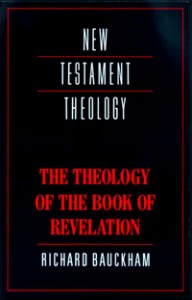 There are many different interpretive models for the book of Revelation. Some approach it as though it were a code to be deciphered, matching ancient images with present figures in an attempt to unlock the secrets of the last days. Others see it as a uniquely Christian history with little or nothing to say to believers today. As we seek to understand this fascinating and oftentimes befuddling book, perhaps we should interpret it in basically the same way we interpret every other book of the Bible. That is to say, maybe the key to unlocking Revelation’s secrets is to simply ask, “What did this mean to the people to whom it was originally written?”
There are many different interpretive models for the book of Revelation. Some approach it as though it were a code to be deciphered, matching ancient images with present figures in an attempt to unlock the secrets of the last days. Others see it as a uniquely Christian history with little or nothing to say to believers today. As we seek to understand this fascinating and oftentimes befuddling book, perhaps we should interpret it in basically the same way we interpret every other book of the Bible. That is to say, maybe the key to unlocking Revelation’s secrets is to simply ask, “What did this mean to the people to whom it was originally written?”
In his book The Theology of the Book of Revelation, Richard Bauckham takes this basic exegetical approach, and manages to make sense of, and draw compelling meaning from, John’s Apocalypse. Bauckham starts where most Christian exegetes start with any other biblical book by asking, “What sort of book is this?” The answer, he discerns, is that “Revelation seems to be an apocalyptic prophecy in the form of a circular letter to seven churches in the Roman province of Asia.” (2)
